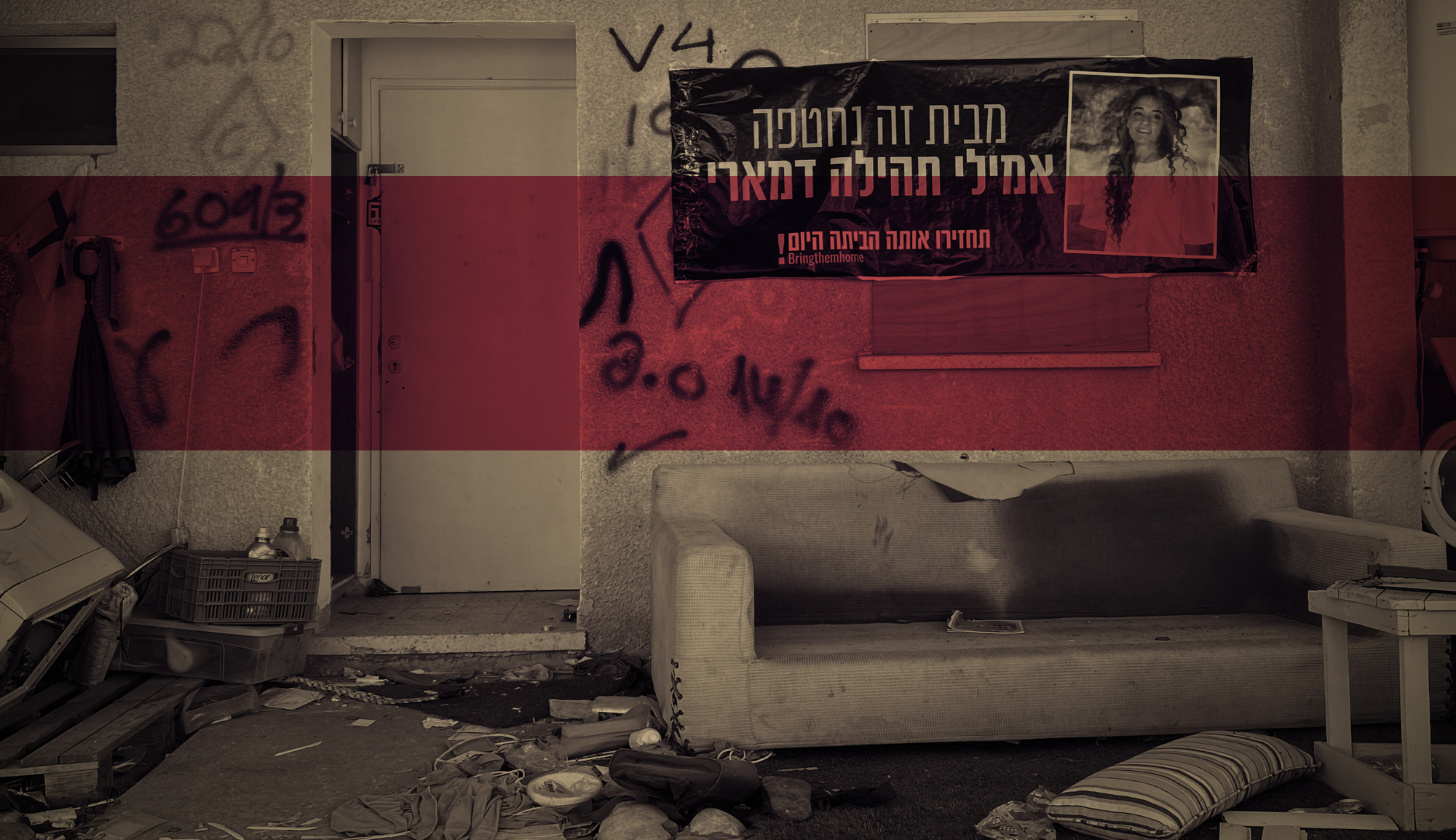After witnessing the aftermath of the Kishinev Pogrom in 1903, Hayyim Bialik wrote his famous poem, “The City of Slaughter,” about
The open mouths of such wounds, that no mending
Shall ever mend, nor healing ever heal.
I have thought about Bialik’s lyrical testimony of the killing of 49 Jews and wounding of hundreds others often since October 7. His bitter surrender to death’s cruelty—and his desperate attempts to convey it—mirrors feelings so familiar to us today.
Tomorrow the rain will wash their mingled blood
Into the runners, and it will be lost
In rubbish heap, in stagnant pool, in mud.
Its cry will not be heard.
It will descend into the deep, or water the cockle-burr.
And all things will be as they ever were.
Jonathan Greenblatt of the Anti-Defamation League described his feelings after October 7 as “the kind of anguish I’ve just never known before.” And after all these months, I believe we are still struggling to give voice to that anguish, to mourn it, and to begin healing from it.
We had no time to mourn over all we lost. That’s why the Three Weeks will be so vital this year.
That delay is in large part because, though the October 7 massacre ended, its consequences continue to haunt us in real-time: It’s the 10th month that our hostages remain trapped, the war against Hamas rages, and the Iranian threat grows greater. Grief can only begin when the nightmare ends. Ours is only intensifying.
In Jewish tradition, death is meant to freeze life for the living. Mourning cannot begin while the deceased is “lying before you.” Only after the funeral is completed, mourning finally begins: seven days of “shiva,” 30 days of “shloshim,” and the remaining year of “aveilut.” Proper grief honors the dead and onsets healing for the living.
Israel and the Jewish People never had such a luxury. We had no time to mourn over all we lost. That’s why the Three Weeks will be so vital this year.
Beginning Tuesday, the Three Weeks is the mourning period leading up to Tisha B-Av, when the Beit Ha-Mikdash (both first and second) was destroyed. Weddings, music, and haircuts cease for our bereavement. That intensifies for the last nine days when things like eating meat and drinking wine become forbidden. On Tisha B-Av itself, we enter near complete mourning—sitting on low chairs, wearing non-leather shoes, refraining from joyful activities (even Torah learning).
Outside of its historical definition in the Roman and Babylonian crimes, the Three Weeks—and certainly Tisha B-Av—have evolved to subsume the many national tragedies across Jewish History. And as of this year, October 7 is included among them.
We need Jewish wisdom to process the incomprehensible. Such horrors as Hamas committed on October 7 are far from digestible to the human soul. We might borrow Bialik’s words in remembering the
Tales that do puncture the brain, such tales that sever
Thy body, spirit, soul, from life, forever!
Then wilt thou bid thy spirit? Hold, enough!
Stifle the wrath that mounts within thy throat,
Bury these things accursed,
Within the depth of thy heart, before thy heart will burst!
Our bodies, our hearts, have utterly human limits. All we heard and saw of October 7 risks severing our “body, spirit, soul, from life, forever.” We are forced to “Bury these things accursed,/Within the depth of thy heart, before thy heart will burst!”
What, then, are we to do?
A period dedicated to presence of mind and focus on sorrow might be the induction we need into grief. How else could we confront emerging reports of the IDF’s failures—in Nir Oz? Be’eri? Or weather the exhaustive hopes of hostage deal breakthroughs that never materialize?
On the 17 Tammuz, as we recall the breach of the Beit Ha-Mikdash’s walls, we may remember the bulldozer rampaging through Israel’s security gate—and repent for the hubris that blinded us to Hamas’ threat.
On 1 Av, as we mitigate our joy in line with the period’s increasing sadness, we might center ourselves on the hard, cold reality plaguing Israel and the Jewish People; we will not distract ourselves from the deaths in our midst and the threats that surround us.
Sitting with this anguish all at once is impossible, like trying to contain an insatiable, ravenous black hole.
By the time 9 Av (Tisha B-Av) comes around, and we cry for the Beit Ha-Mikdash’s destruction, we might position ourselves in the torrential misery that befell us on October 7: remembering everybody butchered, every family fractured, and every tear tainted. It may challenge us to think more carefully about our current crisis, namely our advocacy for the hostages caught in Hamas’ clutches.
Bialik writes:
Now wherefore dost thou weep, O son of Man?
Brief-weary and forespent, a dark Shekinah
Runs to each nook and cannot find its rest;
Wishes to weep, but weeping does not come;
Would roar; is dumb.
Its head beneath its wing, its wing outspread
Over the shadows of the martyr’d dead,
Its tears in dimness and in silence shed.
What a blessing it is to cry, to remember how our souls might shed some of the pain endlessly ringing in the ears of our lives. To crumple into our arms for our 1,200 brothers and sisters never to return: Nathaniel Young, Shani Louk, Yosef Guedalia. Sitting with this anguish all at once is impossible, like trying to contain an insatiable, ravenous black hole.
But with the Three Weeks, we gain gradual entry into that all-consuming grief. Like picking chips of paint from a wall each day, we teach ourselves how to mourn a loss too large for us to grasp, too painful for us to recognize.
I end with some of Bialik’s most powerful words in “The City of Slaughter,” words that remind us too poignantly of the Kibbutzim of Slaughter:
Turn, then, thy gaze from the dead, and I will lead
Thee from the graveyard to thy living brothers,
And thou wilt come, with those of shine own breed,
Into the synagogue, and on a day of fasting,
To hear the cry of their agony,
Their weeping everlasting.
Thy skin will grow cold, the hair on thy skin stand up,
And thou wilt be by fear and trembling tossed;
Thus groans a people which is lost.
Look in their hearts, behold a dreary waste,
Where even vengeance can revive no growth,
And yet upon their lips no mighty malediction
Rises, no blasphemous oath.





































